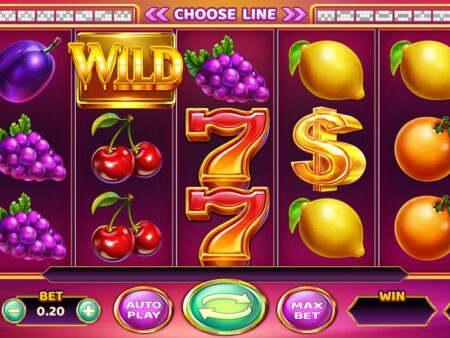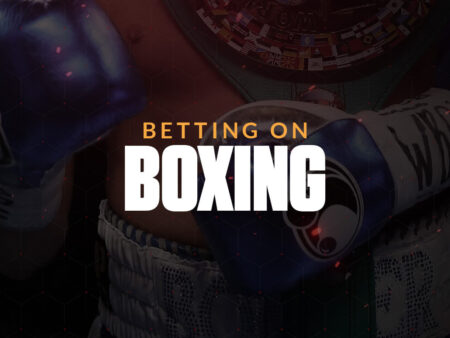Self-exclusion offers an option for those who need to step back from gambling and regain control.
A Guide to Gambling Self-Exclusion in Canada
Contents
- 1 Introduction
- 2 What is Gambling Self-Exclusion?
- 3 How Do Self-Exclusion Schemes Work?
- 4 The Scope of Self-Exclusion: Land-Based vs. Online
- 5 The Process of Self-Exclusion Removal
- 6 The Role of Self-Exclusion in Responsible Gambling
- 7 Challenges and Limitations of Self-Exclusion
- 8 A Look at the Future: Innovations in Self-Exclusion
- 9 Conclusion: Taking the First Step
Introduction
When it comes to gambling, the allure of the games, the thrill of the chase, and the tantalizing promise of hitting the jackpot can be intoxicating. But as with all forms of entertainment, there can be too much of a good thing. For those who find themselves caught in the grip of gambling, self-exclusion programs offer a lifeline—a way to step back, take control, and regroup. In Canada, these self-exclusion schemes are widely available and serve as a crucial tool for responsible gambling. But what exactly are these programs, how do they work, and what should you know if you’re considering self-exclusion? Let’s dive into the world of gambling self-exclusion in Canada.
What is Gambling Self-Exclusion?
Gambling self-exclusion is a voluntary process where individuals can request to be barred from gambling activities and establishments. This could include land-based casinos, online casinos, land-based bookmakers, and online sportsbooks. The aim is to help individuals who struggle with gambling to avoid temptation and regain control over their gambling habits.
In Canada, self-exclusion programs are available across the country, though the specifics can vary depending on the province and the type of gambling venue. The idea is simple: if you feel that your gambling is getting out of hand, you can opt to place yourself on a self-exclusion list, effectively banning yourself from entering certain gambling venues or using specific gambling services.
How Do Self-Exclusion Schemes Work?
Self-exclusion schemes are designed to be accessible and straightforward, offering a practical solution for those needing a break from gambling. Once you’ve decided to self-exclude, the process typically involves filling out a form either in person at the gambling venue or online through the operator’s website. You’ll be asked to provide identification and other necessary details to ensure you are accurately added to the self-exclusion list.
In some cases, you may also need to have your photograph taken, which will be used to help identify you if you attempt to enter a venue from which you’ve self-excluded. This may sound a bit invasive, but it’s a crucial part of the process to ensure the effectiveness of the scheme.
Once you’re on the self-exclusion list, you’ll be prohibited from entering the specified gambling venues or using certain online gambling services for a predetermined period. This period can range from six months to several years, depending on the program and your choice. Some programs also offer indefinite self-exclusion options.
The Scope of Self-Exclusion: Land-Based vs. Online
One of the key aspects of gambling self-exclusion in Canada is that it covers both land-based and online gambling venues. This is particularly important in today’s digital age, where online gambling has become increasingly popular.
Land-Based Casinos and Bookmakers
For those who prefer the atmosphere of brick-and-mortar casinos or the local bookmakers, self-exclusion can mean banning oneself from these physical spaces. In Canada, most major casinos and gambling establishments participate in self-exclusion programs, providing a unified approach to helping problem gamblers. This means that if you self-exclude from one casino, you may also be barred from others under the same program or network.
Online Casinos and Sportsbooks
Online gambling presents a unique challenge in self-exclusion because of the ease with which players can access games and betting opportunities. Thankfully, online casinos and sportsbooks in Canada also offer self-exclusion options. Players can request to have their accounts suspended, preventing them from accessing the site’s services.
It’s worth noting that self-exclusion from online gambling can be trickier to enforce, given the proliferation of online gambling sites. However, many reputable online casinos and sportsbooks are part of larger networks or associations that share self-exclusion lists, thereby extending the reach of your self-exclusion request.
The Process of Self-Exclusion Removal
Life changes, and so can one’s need for self-exclusion. If you feel that you no longer require the protections offered by a self-exclusion program, there are procedures in place for self-exclusion removal. However, this isn’t as simple as making a quick phone call or sending an email. Self-exclusion is designed to be a serious commitment, and lifting it often involves a formal process.
Typically, you’ll need to submit a request to the operator or authority that manages the self-exclusion list. This may require a waiting period or a meeting with a counselor or responsible gambling professional to discuss your reasons and ensure that removing yourself from the list is in your best interest. It’s a thoughtful safeguard to ensure that individuals are genuinely ready to return to gambling responsibly.
The Role of Self-Exclusion in Responsible Gambling
Gambling can be a fun and exciting pastime, but it’s essential to approach it with a responsible mindset. Self-exclusion is one tool among many that can help individuals manage their gambling behavior. It works best when combined with other strategies, such as setting limits on time and money spent gambling, seeking support from friends and family, or even professional counseling.
In Canada, responsible gambling initiatives are widespread, with many provinces offering resources and support services. Whether through helplines, counseling, or self-help resources, there’s a strong network available to assist those who find themselves struggling with gambling.
Challenges and Limitations of Self-Exclusion
While self-exclusion is a valuable tool, it’s not a cure-all. There are challenges and limitations to consider. One of the main issues is enforcement, especially with online gambling. Although many operators share self-exclusion lists, the sheer number of gambling sites means that it’s still possible to find places to gamble, even if you’ve self-excluded from others.
Another challenge is that self-exclusion relies heavily on self-regulation. It’s up to the individual to respect the terms of their self-exclusion and avoid trying to bypass the system. For some, this can be a tough ask, particularly when faced with the urge to gamble.
Lastly, self-exclusion doesn’t address the root causes of problem gambling. It’s a tool for managing behavior but doesn’t offer a solution to underlying issues such as addiction, stress, or financial problems. This is why combining self-exclusion with other forms of support is often recommended.
A Look at the Future: Innovations in Self-Exclusion
The landscape of gambling is constantly evolving, and so are the methods for helping individuals manage their gambling habits. In Canada and around the world, innovations in technology and policy are making self-exclusion more effective and accessible.
For example, there are discussions about creating national self-exclusion databases that would allow individuals to self-exclude from all forms of gambling across the country with a single request. This would simplify the process and provide a more comprehensive barrier against gambling.
Additionally, advancements in artificial intelligence and data analytics are being explored to enhance the monitoring and enforcement of self-exclusion. These technologies could help identify patterns of behavior that indicate someone is struggling with gambling, prompting earlier intervention and support.
Conclusion: Taking the First Step
Gambling self-exclusion in Canada offers a valuable option for those who need to step back from gambling and regain control. It’s a personal decision and a step toward responsible gambling, providing a breather and an opportunity to reassess one’s relationship with gambling.
Whether you’re considering self-exclusion for yourself or someone you care about, remember that it’s a tool—one of many—that can help manage gambling behavior. And while it has its limitations, it’s a crucial part of a broader strategy for promoting responsible gambling and supporting those who need it.
If you or someone you know is struggling with gambling, consider reaching out to local resources and support services. The journey to responsible gambling doesn’t have to be a solitary one, and with the right tools and support, it can be a path toward a healthier and more balanced life.
- A Guide to Gambling Self-Exclusion in Canada - July 29, 2024
- Maximize Your ROI in Sports Betting: Expert Tips - July 16, 2024
- How to Make the Most of Canadian Bets: A Comprehensive Guide - June 18, 2024




